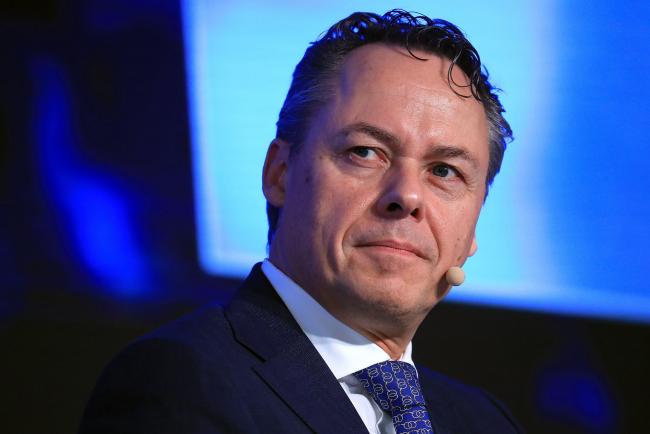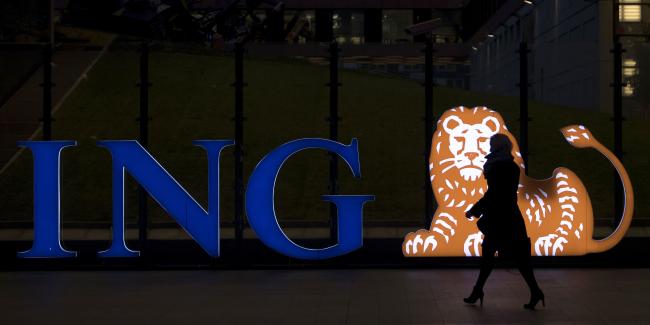(Bloomberg) -- ING Groep (AS:INGA) made more money from lending last quarter than analysts had expected as Chief Executive Officer Ralph Hamers relied on growth outside of the euro region to alleviate the impact of negative interest rates.
The lender, which depends on its loan book for about 80% of its income, on Thursday reported a slight increase in net interest income and 3.8% higher fees and commission, with both figures beating the bank’s own survey of analysts. Revenue declined as the investment bank made less money from trading.
“Even with the ongoing negative interest rate environment, our net interest income has remained resilient,” Hamers said in the statement.
The largest Dutch bank has aggressively added clients, but the traditional banking business is being squeezed as the European Central Bank’s negative interest rate policy erodes income from lending. Compliance costs, meanwhile, have increased following a record fine last year. On Wednesday, Deutsche Bank AG (DE:DBKGn) suffered its worst share price drop in three years after lower interest rates weighed on revenue in all but one of its main businesses.
ING added 165,000 primary retail customers in the quarter, helping push income from lending and fees higher. But a lower valuation result and a decline in trading revenue weighed on revenue. Hamers said in an interview last month that more adjustments to the investment bank may be needed.
“If the environment prolongs, and the markets stay as they are, I think further need for restructurings” at the unit could materialize, he told Bloomberg Television.
ING has been struggling for some time to make its markets division -- a relatively small business with just a few hundred employees -- more profitable. It centralized trading in London a few years ago, slashing jobs in Brussels and Amsterdam in the process.
Underlying profit at the group fell 11% as operating expenses rose. ING has increased its spending on anti money laundering checks in previous quarters after it paid a record fine to settle a criminal investigation in the Netherlands a year ago. In Italy, the central bank in March ordered ING to stop taking on new clients in the country after finding shortcomings in its screening of clients.
ING’s results on net interest income and fees are encouraging, according to Mediobanca analyst Robin van den Broek. “Costs remain somewhat of a headwind but as of next year the effect of the restructuring program should start to kick in,” he wrote in a note.
Adding to higher compliance costs are worries that years of low interest rates may increase risks in banks’ loan books. Dutch banks must increase their capital buffers to safeguard against mortgage writedowns, the country’s central bank said in a recent report that highlighted prolonged low rates are the main risk to financial stability.

